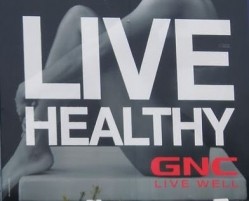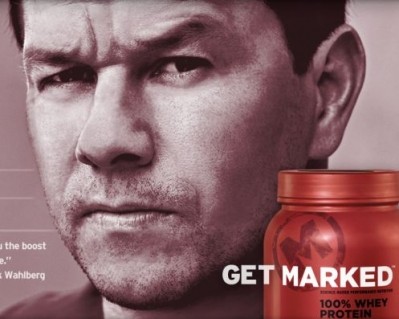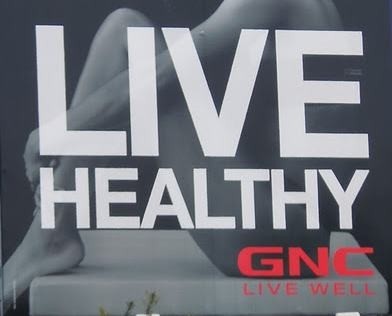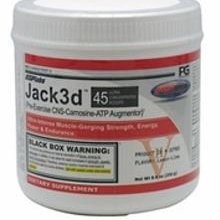GNC: There is no scientific evidence to prove causal link between DMAA and AERs

The supplement giant, which said it had sold 440 million doses of products containing DMAA since 2007 with only one serious adverse event report, recently agreed to recall 18 products containing DMAA from GNC stores on US army and air force bases.
It added: “Even though GNC believes DMAA is safe for consumer use, it has complied fully with the Army’s request… as it is contractually obligated to do.
“All of these products are third party products for which their manufacturers have represented to us their safety.”
GNC: FDA has not initiated any recalls
A spokesman added: “There is also no scientific/medical evidence that demonstrates any causal link between DMAA and any adverse medical condition, let alone a death.
“The Food and Drug Administration (FDA), the supplement industry’s primary regulator, has not mentioned any safety issues with DMAA nor has it initiated any DMAA product recalls because of safety concerns.
“It’s important to remember that adverse event reports do not equate to scientific/medical evidence that demonstrates a product was the cause of the harm.”
His comments came as the FDA said it would consider whether regulatory action was required over DMAA in the wake of the army probe and class action lawsuits filed against two firms selling supplements containing it.
The DoD, however, has stressed that “no link between DMAA and the medical conditions reported by military medical providers has been validated scientifically by us."
It also acknowledged that all of the medical conditions claimed by some to be associated it DMAA “have multiple causes”, adding:” It is too soon to tell if there is a relationship with DMAA.”
Neal-Kababick: I have been unable to get any supplier to provide raw material for testing
Meanwhile, the debate about whether DMAA - first manufactured synthetically by drug giant Eli Lily in the 1940s - is in fact a constituent of geranium, as US supplement makers claim, continues to rage on.
James Neal-Kababick is the founder and director of Flora Research Laboratories (FRL) which specializes in the research and analysis of botanicals, dietary supplements and related compounds.
He told NutraIngredients-USA: “There are strong proponents that argue that the material is natural and found in geranium. Being an open minded scientist, I am always trying to see if there might be any truth to this but I have been unable to get any supplier to provide the raw material in the form of cut and dried botanical for our testing.
“I can take any extract or oil and incorporate a drug into it which would make it look natural. However, that is much harder (but not impossible) to do with whole plant sections. You have to soak them in a solution or spray on the drug and that is something we can detect in many cases.”
He added: ”The FDA has not moved as quickly as Health Canada [which has classified DMAA as a drug and says it is not found in geranium] but I anticipate there will be enforcement action on this.”
ChromaDex: Show me the evidence …
Frank Jaksch, chief executive at analytical testing and health ingredients firm ChromaDex, said he too had “not seen any credible evidence that DMAA is in geranium.”
There is only one study that is repeatedly referenced to show that DMAA is a naturally occurring constituent of geranium oil (Ping, Z.; Jun, Q. & Qing, L. (1996), ‘A Study on the Chemical Constituents of Geranium Oil, Journal of Guizhou Institute of Technology 25 (1): 82–85), said Jaksch.
“I’ve seen data from some other sources that have tried to reproduce the results [of the Ping et al study] and no one has been able to do it. Everything that we’ve seen appears to be synthetic material.”
He added: “Maybe there are synthetic compounds out there that would be considered to be nature identical – but then what are they nature identical to? There is no scientific data I’ve seen that supports that DMAA is in geranium in the first place.”
Class actions will purge industry of DMAA before FDA does
He added: “There is a lot of confusion about [the regulatory status of] DMAA; we’re been talking about it for years but it seems to come in waves. I remember being asked about seven years ago by a customer to assess whether it was fit for inclusion in a supplement and we concluded it was far too risky.”
As for what if any action was needed from the FDA, he said: “My guess is that class action lawsuits will probably purge it from the market much faster than the FDA.”
He added: “Technically this compound was a drug long before it was a supplement.”
The American Herbal Products Association (AHPA) has told members they should not label DMAA as geranium oil - or any part of the geranium plant – from January 13.
However, USPLabs – which claims the DMAA in its OxyELITE and Jack3d dietary supplements is derived from geranium - says it has new data from “two independent and highly respected analytical chemistry laboratories, utilizing advanced validated analytical instrumentation and methods” that “further demonstrate the occurrence of DMAA in the geranium plant, Pelargonium graveolens, and its edible oil”.
















